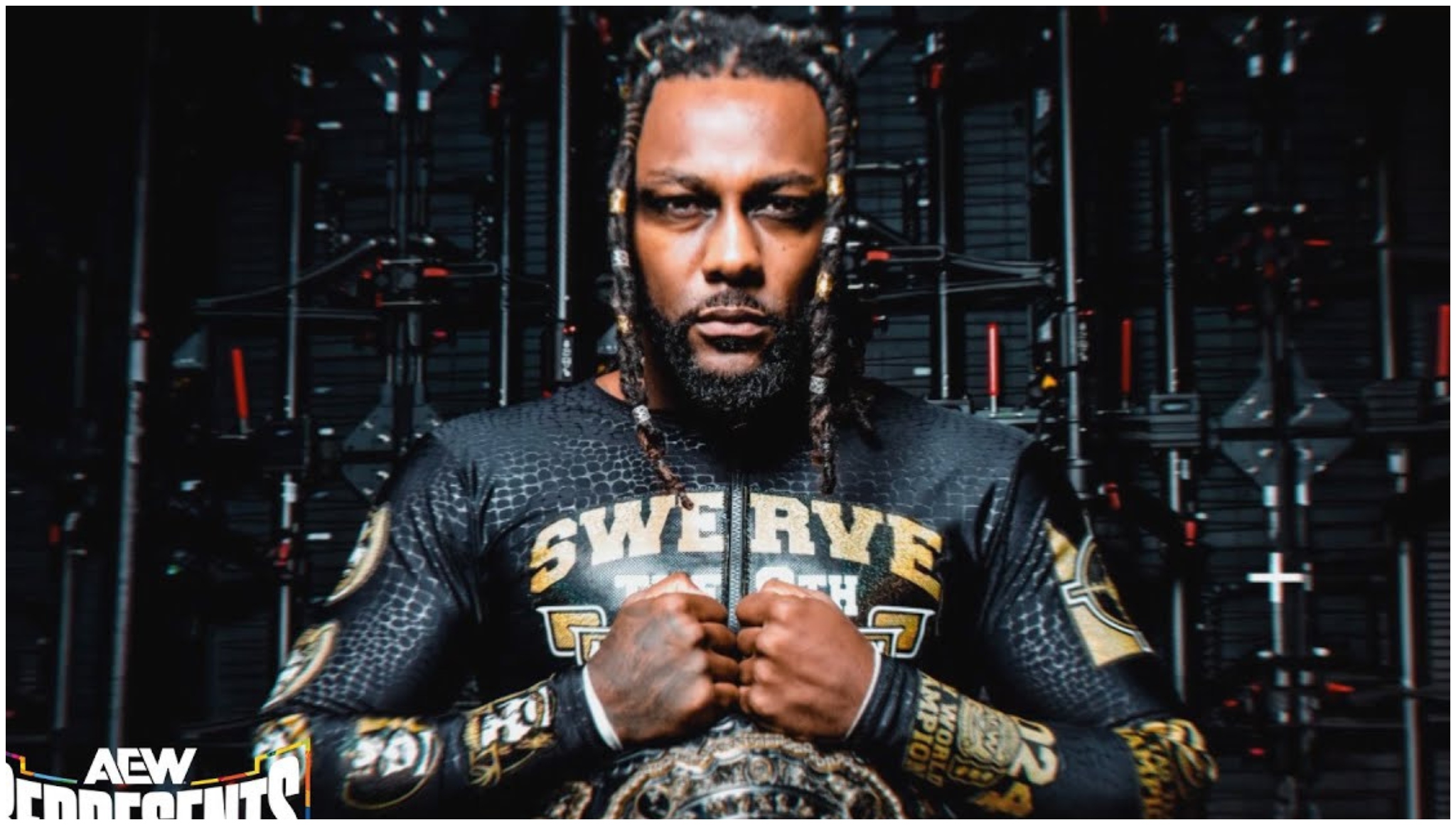Swerve Strickland, who made history as All Elite Wrestling’s first Black world champion at AEW Dynasty 2024, is advocating for Hollywood to tell more stories about wrestling’s Black pioneers. Speaking at the recent premiere of “Queen Of The Ring,” Strickland expressed his desire to see the struggles and triumphs of wrestling’s first Black world champions portrayed on the big screen. His call highlights the rich but often overlooked history of Black wrestlers who broke barriers in a predominantly white industry.
AEW Champion Calls for Black Wrestling History to Reach Mainstream Audiences
“I would like to see more of the first Black wrestling world champions and stories like that,” Strickland stated during an interview with Women’s Wrestling Talk at the “Queen Of The Ring” premiere. The current AEW World Champion emphasized the importance of showcasing “truly the struggles” faced by these pioneering figures who paved the way for today’s diverse wrestling landscape.
Strickland’s comments come from his unique position as a history-maker himself. Since signing with All Elite Wrestling, he has achieved significant milestones, with his world championship victory representing a watershed moment for representation in the company. His perspective combines personal achievement with an appreciation for those who broke ground before him.
Territory Era Wrestling Stories Could Educate Modern Fans Through Film
Beyond focusing solely on Black wrestling pioneers, Strickland also advocated for films exploring professional wrestling’s territorial system. This business model dominated the industry before WWE’s national expansion in the 1980s. “We see little pieces of it and glimpses and it’s talked about, like in the Iron Claw and things like that, mentioning the territories, but I still don’t think we’ve educated the people on, like, what that truly was,” he explained.
The champion believes mainstream audiences would benefit from learning about this foundational period in wrestling history. While recent wrestling films like “The Iron Claw” touched on the territorial era, Strickland suggests more comprehensive storytelling could better preserve this crucial chapter of wrestling history. His vision would bring these stories “back more stories in the mainstream and the big screen” to reach audiences beyond dedicated wrestling fans.
First Black World Champions Deserve Recognition Beyond Wrestling Community
Strickland’s call for representation acknowledges the struggles faced by pioneering Black champions across various wrestling promotions. Figures like Bobo Brazil, Ron Simmons, and The Rock broke significant ground in an industry that historically limited opportunities for wrestlers of color. Their achievements often came against considerable backstage resistance and societal prejudice.
The AEW champion’s advocacy comes at a time when wrestling’s popularity in mainstream entertainment continues growing. Recent projects like “Fighting With My Family,” “Young Rock,” and “The Iron Claw” have found success with general audiences. Strickland sees this momentum as an opportunity to spotlight important but underrepresented stories about wrestling’s diversity pioneers.
Champion’s Vision Extends Beyond Personal Legacy to Wrestling’s Cultural Impact
As the reigning AEW World Champion, Strickland could easily focus solely on his own legacy. Instead, his comments reflect a deeper understanding of professional wrestling’s cultural significance and the importance of documenting its complete history. His perspective demonstrates how today’s wrestling stars increasingly view themselves as custodians of the industry’s heritage.
Strickland’s advocacy for these stories aligns with broader conversations about representation in entertainment media. By pushing for films about wrestling’s first Black world champions, he’s contributing to efforts ensuring these groundbreaking figures receive their rightful recognition. Their stories represent not just wrestling history but important chapters in the broader struggle for equality in American entertainment.
The champion’s call for more diverse wrestling stories in Hollywood potentially opens doors for filmmakers interested in these untold narratives. With wrestling enjoying renewed mainstream interest, Strickland’s platform as AEW World Champion gives significant weight to his advocacy for celebrating the sport’s pioneering Black athletes through film.





